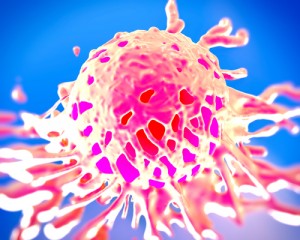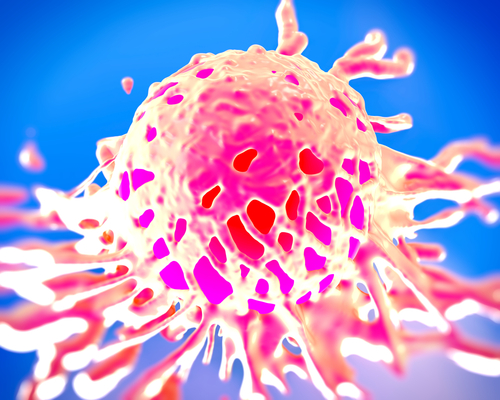 Cancer fighting chimeric antigen receptor (CAR) T cells, developed by Dr. Charles Sentman’s laboratory of Dartmouth’s Norris Cotton Cancer Center, are now entering a Phase I clinical trial.
Cancer fighting chimeric antigen receptor (CAR) T cells, developed by Dr. Charles Sentman’s laboratory of Dartmouth’s Norris Cotton Cancer Center, are now entering a Phase I clinical trial.
CAR-T cells are innovative antibody cancer therapies engineered to mimic the functions of a T cell receptor. By recognizing intracellular protein fragments via the MHC-peptide complex, a new type of immunotherapy can be created, where these antibodies can efficiently enter a cancer cell and recognize cancer-associated proteins, mobilizing the immune system to mount a deadly response against the cancer cell.
The majority of therapeutic monoclonal antibodies can only target extracellular proteins (proteins anchored at the cell surface). However, approximately 90% of cancer-specific targets are actually intracellular (inside the cell) proteins. Due to the capacity of these modified antibodies to target intracellular proteins, they are emerging as a big field in cancer research and development
Dr. Sentman’s lab first published his work with CAR T cells back in 2006, where the team showed CAR therapy had the potential to be applied to many different types of cancer, eliminating tumor cells and preventing cancer recurrence.
The first CAR therapy to be evaluated in clinical studies will be CM-CS1, an autologous CAR T-cell construct that uses the receptor NKG2D to target tumor cells. The specific ligand for NKG2D is expressed on a multitude of cancers, such as pancreas, breast, and prostate cancers.
For now, this trial will study CM-CS1 in blood cancers, like leukemia and lymphomas.
Another innovative immunotherapeutic being developed in Dr. Sentman’s laboratory combines CAR T cells with TCR-inhibiting molecules (TIMs), which were designed to prevent Graft-versus-Host-Disease. If this approach proves successful, it will significantly decrease time to treatment, simplify logistics, and lower associated costs.
“We are very excited about the opportunity to move these novel therapies into the clinic,” Dr. Sentman said in a news release.” It is an exciting time in cancer immunotherapy, and the potential of CAR cell therapies holds great promise to improve patients’ health.”


